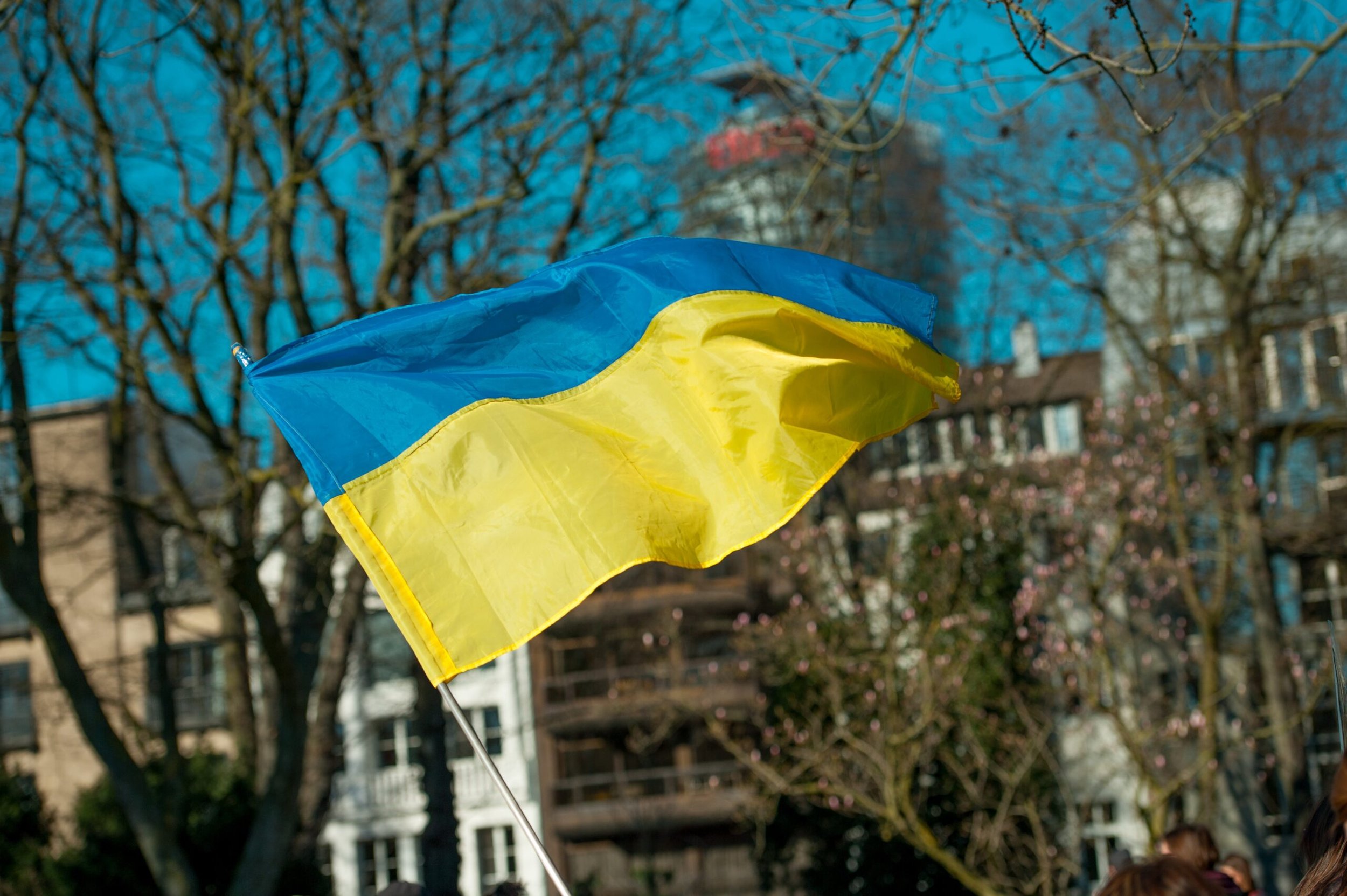That Was a Heck of a Quarter
How the Ukraine war, inflation, and market volatility impacted us — and what’s next?
Here’s a sentence I never thought I’d write: Greetings from Saudi Arabia! I am visiting this unexpected destination to look at tourism development opportunities in Riyadh, Al-’Ula, Jeddah, and elsewhere. Saudi is fascinating, stunning, hospitable, and, from my Western perspective, very surprising. There are obviously very serious human rights concerns to take into consideration. But the country’s efforts to slowly open itself up to tourism has me thinking quite a bit about the future of our industry.
 More on that in a future column. For now, I am dwelling on the present, which is also surprising and stunning… for very different reasons. I am referring, of course, to Putin’s invasion of Ukraine and the humanitarian and economic upheaval it has unleashed. Just as we’ve all been cheering the post-COVID path toward normalcy and travel’s strong comeback, fate has dealt us more challenges: a war and refugee crisis in Europe, rising oil prices, sanctions, flight diversions, and more.
More on that in a future column. For now, I am dwelling on the present, which is also surprising and stunning… for very different reasons. I am referring, of course, to Putin’s invasion of Ukraine and the humanitarian and economic upheaval it has unleashed. Just as we’ve all been cheering the post-COVID path toward normalcy and travel’s strong comeback, fate has dealt us more challenges: a war and refugee crisis in Europe, rising oil prices, sanctions, flight diversions, and more.
All of these have the potential to disrupt the recovery we’ve been so eagerly working toward. Vaccination and testing requirements are loosening, mask rules are easing up, people generally feel more comfortable traveling, and economic conditions are generally favorable. We’re seeing a lot of forward momentum as a result. How much will the bad news out of Ukraine slow that down?
To take the pulse of the luxury travel advisor community, I did a flash survey of members of Strategic Vision’s Research Panel. Most reported that forward bookings to Europe and other destinations are holding steady, with only a handful of trips canceled or rescheduled. Those mostly have been Baltic and Black Sea cruises that rerouted to avoid Russian ports, as well as trips to Eastern Europe, including a few river cruises. “Families who are planning to go to Central Europe have hesitated or are inquiring about their options if they were to postpone or cancel,” said Kendra Thornton of Royal Travel & Tours. “Travelers heading to Western Europe and other parts of the world are full steam ahead.”
That’s not to say there is zero concern about how the war’s impacts might spread. For some advisors, summer bookings to Europe have been slower to confirm. “We’ve seen more hesitation and perhaps a slow down to commit while clients ‘wait and see,’” said Shawna Huffman Owen of Huffman Travel. “Summer and beyond don’t appear impacted other than a few more questions about whether travel insurance covers acts of war.” (In most cases, it doesn’t.)
 “There are so many dynamics at play that it’s hard to say any one event is having a positive or negative impact,” said Brian Hegarty, Vice President Marketing at Travel Leaders Group. “As Ukraine made headlines, there were also global announcements removing travel restrictions in several high-profile long-haul destinations; most masking and testing restrictions have been reduced or removed across the Caribbean, Canada, and the U.S.; and demand for spring travel is at record pace. There is very little left to sell — at very high prices.”
“There are so many dynamics at play that it’s hard to say any one event is having a positive or negative impact,” said Brian Hegarty, Vice President Marketing at Travel Leaders Group. “As Ukraine made headlines, there were also global announcements removing travel restrictions in several high-profile long-haul destinations; most masking and testing restrictions have been reduced or removed across the Caribbean, Canada, and the U.S.; and demand for spring travel is at record pace. There is very little left to sell — at very high prices.”
For the luxury market at least, those high prices haven’t been much of a deterrent. Supply and demand issues have been driving hotel and rental car rates up for some time. Now, thanks to general inflation and rising fuel prices from the Ukraine conflict, airlines, cruises, tour operators, and other segments are beginning to catch up.
Still, most travel advisors said their luxury clients are charging ahead, for a combination of reasons. For one, pent-up demand is overcoming any sticker shock. Second, the affluent have only become more affluent and are sitting on mountains of unspent cash. Third, hotels are already very expensive, so airfare hikes are being taken in stride (“Prices are so obnoxiously high and still selling out… What’s another few dollars?” is how Jack Ezon of Embark Beyond put it).
But again here, there are concerns that the impact could worsen if conditions don’t improve, especially for non-luxury travelers. “I do think we will eventually see some impact in the mass market clients we service,” said Thornton. “Right now there is still pent-up demand. so people are traveling en masse for spring break right now. But fast forward 6 to 12 months and I do think we will see a negative impact on our bookings if inflation continues at this rate.”
Several advisors expressed concern about inflated prices at hotels and DMCs that are still struggling with labor shortages and therefore risk under-delivering in terms of service. “Five-star prices for three-star experiences,” is how Beth Flowers at Brownell Travel labeled it. “We need the hospitality labor crisis to soften. Managing clients’ expectations, with testing still a factor — and rate and service issues — makes recessions look easy.”
I asked the Advisory Board member if they had any practical advice to offer to their industry peers who read Luxury Beat. Here, in sum, is what they had to say:
- Be transparent, particularly about service levels and cleanliness. “It’s tempting to fill up every hotel room, airline seat, and cruise berth. But inferior service levels will have a longer-lasting effect than a few more dollars in the short run,” said Steve Orens of Plaza Travel.
- Manage burnout, both on your own team and with your partners. “Because of how labor-intensive the work is now vs. pre-pandemic, lots of patience and WD-40 is needed with staff and advisors to jump back in full-throttle,” said Flowers.

- Support travel advisors by, among other things, reducing call hold times, working towards price parity, continuing education sessions (and accommodating those advisors who will continue to work remotely), and improving self-service tools. “Travel advisors are trying to juggle multiple layers of concern from clients and various COVID regulations. We value and need support from our travel partners. We are all in this together,” said Liz Sutton of Alabama World Travel.
- Be flexible. That means both maintaining the looser cancellation and travel credit policies that have built consumer confidence over the past two years, and continuing to adjust to ever-changing circumstances. “Be like water: Adapt to change,” said Andy Harris of Harris Travel Service (paraphrasing Bruce Lee, of all people!).
- Remain mindful of what we’ve all been through. That entails rethinking how we do business so we don’t go back to “the old ways.” It means preserving the relationships and mindsets that got us through the pandemic. “The lesson I take from this is to continue extending grace to one another and practicing gratitude for the overwhelming business we have, the opportunities to serve clients and craft unforgettable memories, and to hop on a plane and experience what we all lost for a horrifying point in time: the ability to be transformed by travel,” said Lindsey Epperly of Jetset World Travel.
On that note, I want to underscore what has impressed me the most during the Ukraine crisis: The incredibly united front that the travel industry has shown in its response to Russian aggression. With only a few exceptions, we have exerted pressure on the Putin regime by respecting the sanctions and limiting our business with Russia. And we have embodied the core values of hospitality by raising awareness and providing material support for the people of Ukraine. I was moved by the stories of Polish hoteliers and others extending a hand to refugees. And it was thrilling to see tens of thousands of people use Airbnb as a way of sending funds directly to Ukrainians.
Our industry has been through hell in the past two years. But the way we’ve come together to show our support for Ukraine and our revulsion at Putin’s inhumane behavior is something we can all be proud of.
What about you? Do you believe the impact of the Ukraine crisis will get worse for the industry? What keeps you up at night? And what advice do you have for your fellow industry colleagues? Let's keep the conversation going!

